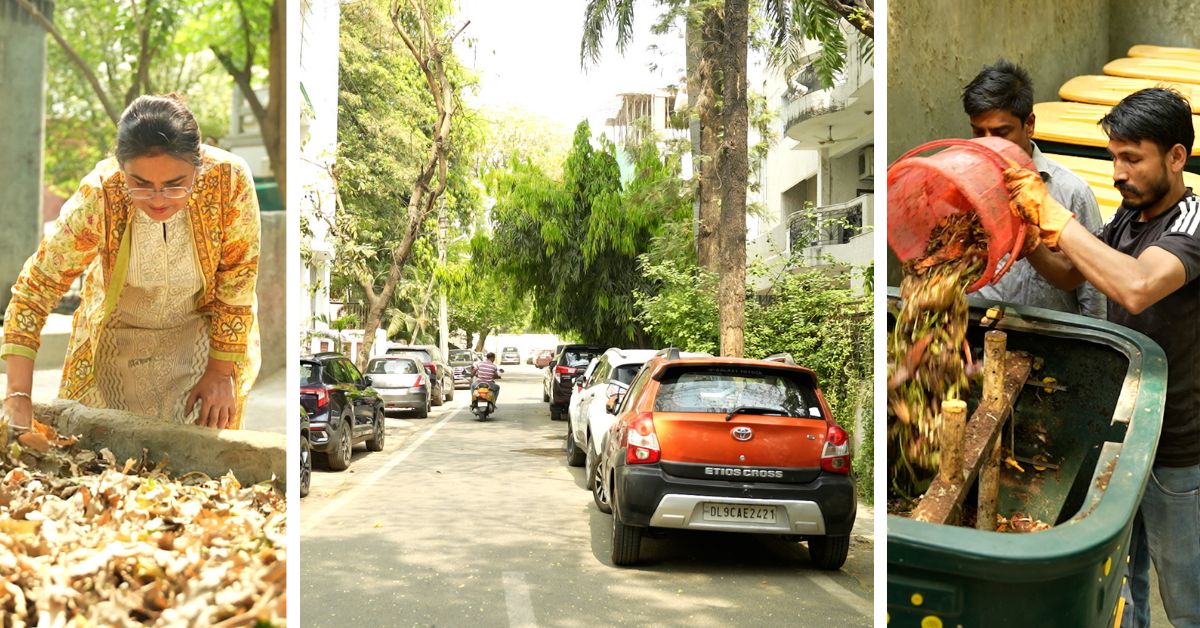Each morning in Navjivan Vihar, South Delhi, 280 households begin their day like most of us — making tea, packing lunchboxes, and preparing for work or college. However there’s one small factor all of them do this makes their colony very totally different: they separate their waste into three bins — moist, dry, and dangerous.
It appears like a tiny behavior. However over time, it has made an enormous distinction.
For the previous six years, not even one bag of rubbish from this colony has gone to a landfill.
The story goes again eight years, when Dr Ruby Makhija, who lives right here and is a health care provider, turned the RWA secretary.
“As a health care provider, I’ve seen how dangerous sanitation could make folks sick. After I bought this function, I lastly had an opportunity to alter issues in my very own neighbourhood,” she says.
The very first thing she labored on was getting everybody to segregate their waste correctly.
She and her group went door to door, speaking to folks, answering questions, and clearing doubts. Some folks have been fearful about dangerous smells. Some thought it was an excessive amount of work. Even the waste staff stated, “This isn’t our job.”
However Dr Ruby didn’t hand over. She despatched each day updates, made brief movies, and stored sharing info to clarify why this was essential.
Slowly, issues started to alter.
Immediately, 125 kg of kitchen waste will get composted each single day and is used to make the gardens greener. Dry waste like plastic, paper and glass goes to recyclers. Garments, furnishings, and even gasoline cylinders are donated by means of their Triple R Centre, and over 30 tonnes of these things have been reused by means of NGOs.

However that’s not all. The colony additionally saves water through the use of rainwater harvesting and aerators on faucets. They actually have a neighborhood fridge the place folks can depart additional meals for anybody who wants it.
The numbers are wonderful:
- 17 tonnes of plastic recycled
- 3,000 kg of e-waste diverted
- 30+ tonnes of things donated and reused
- And 6 years of zero rubbish reaching landfills
When you go to the colony as we speak, you’ll see inexperienced gardens, clear streets, and a peaceable vibe. You gained’t see the onerous work that goes on behind the scenes. However for Dr Ruby and the residents, this has change into a standard a part of life — a small behavior that fully modified their colony’s future.